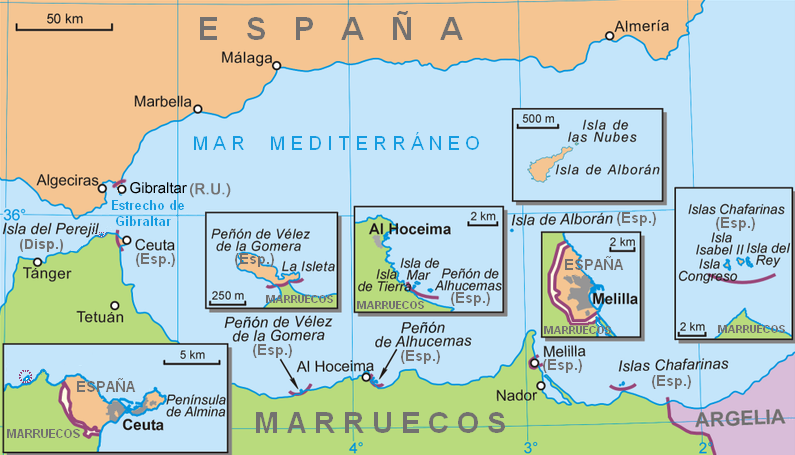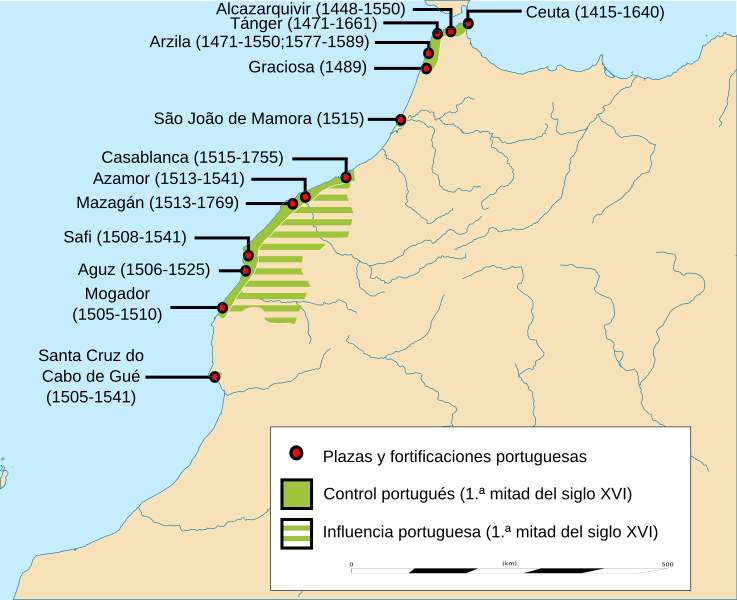probably 50 or after the death of Ibn Hafsun 'the wise'.
Well, the Fatimid Caliphate in the OTL ascended 8 years before Umar died (If he died in the same year as in the OTL), and in the OTL this rise generated an Umayyad intervention in the Morroco region. So it is likely that the new dynasty will be forced to do the same. So while it's difficult to say something specific, the region is going to be a mess.
What was the situation like in North Africa at the end of the 9th century?
Would a stronger Al-Andalus have projected power in the Maghreb?
I would say that considering how new this dynasty is when compared to the Umayyads, they can act in two ways, more aggressive or more shy than the Umayyads. If they are more timid, they will probably invade in the same way and hold Melilla, Ceuta and Tangier (thus controlling the Maghreb's access to Iberia). In OTL the Umayyads then occupied the rest of northern Morocco, and spent the next century fighting for control of Morocco against the Fatimids. The most careful case they would expand in the north of Morocco securing that region and a few other important regions such as Alhucemas, the Chafarinas Islands, and Peñón de Vélez de la Gomera. After that they would strengthen the navy and let the locals fight with the Fatimids. Perhaps they even supported local Berber dynasties against the Fatimids and the local Arab dynasty, the Idrisid. Basically doing the English tactic of preventing an invasion, doing as little as possible and only supporting it indirectly. in the more agressive case they expand more than the Umayyads did in the otl. If it works in theory, they would probably expand to Algeria.
For comparison this is the Umayyad control in the 10 century
This is important because it would be the new emirate's first major campaign and future campaigns used this as a base.
If the tactic of naval expansion, control of key regions and playing the powers of the Maghreb against each other works I imagine they will repeat this on a larger scale. So future expansion will likely be focused on controlling the western Mediterranean. First the Balearic Islands (this is relatively easy) followed by the islands of Sardine and Sicily. If the country secures Sicily and the 6 conglomerates of islands around it, it will have control of most of the western Mediterranean and access to the eastern Mediterranean.
To give you an idea, these were the regions that Portugal and Spain controlled. it would be a more indirect tactic. in which you spend less manpower but gain more economic power. This of course doesn't paint the map but it is a more solid empire in my opinion, especially with the fact that Asturia and France are neighbors of the country. France alone will suck up a large number of manpower. That and in this era we have Vikings who are a problem.
Now if the tactic that gains prominence is expansion, the country will try to expand throughout the Maghreb, probably doing the same thing that the Umayyads did on a larger scale. This will require much more manpower, money and special attention to control the various Berber tribes. But on the other hand it probably allows the emirate to paint the map and directly access the resources of the Maghreb as well as its maintenance costs.
Another factor that is vital is religion and how Muladi Islam will be accepted by the Maghreb. Umar and his descendants may have difficulty gaining support as the Umayyds did, combining this with the Shia rising to the east could generate an orthodox Sunnite Berber movement. This movement can be used by the Idrisid to try to garner support or it can be used by some local Berber. What could also happen is about 20 years of chaos and something coming out of it.
Also, since this Alt-Andalus uses Mozarabic as its court language, could we see the survival of African Romance under the umbrella of Mozarabic?
As
@Nivek said African Romance is kind of already dead. Now if Mozarabic is the court language you can have it adopted by groups that support Andalus. But it is more likely that the Maghreb will stick to their local Berber and Arabic dialects. And Mozarabic is seen as something unique to the Iberian region. If mozarabic together with the peculiar Islam practiced by the Muladi generates a certain feeling of isolation, it can create two reactions.
The first an adoption of Arab language and culture (considering that the revolt is mostly anti-Arab, I find this unlikely). The second is they double down on this quirk and use it as a form of self elevation. This can be something as simple as a form of identity affirmation or it can go the opposite way and go into a peculiar form of Shu'ubiyya.
If we use Ibn Gharsiya who was a leading proponent and advocate of the Shu'ubiyya thought in Al-Andalus as a basis. Ibn Gharsiya asserts cultural superiority of the Muwalladun over the Arab (and racia as welll ;using the heritage of the Visigoths, Slavs, and Romans. Romans in particular was used frequently, interestingly Persian as well as a way of comparing Arabic with these two groups. Basically he fought Arab racism with Muladi racism). An example of how he did this is the boast about the Muladi mastery of natural philosophy, exact logic, astronomy, music, arithmetic, and geometry, he ridicules Arabs as experts in the description of towering camels. He attempted to formulate and legitimize a non-Arab alternative to Arab rule which involved combining Arab and non-Arab traditions, which were mainly Persian and Byzantine.


